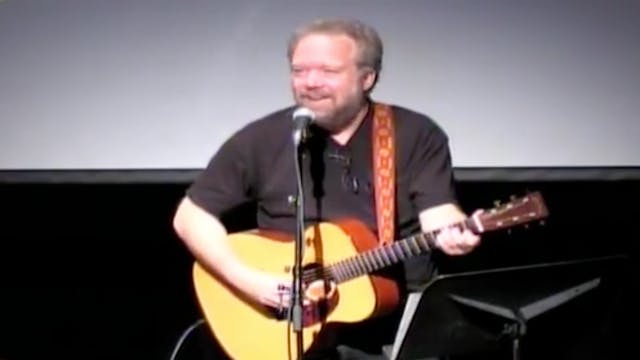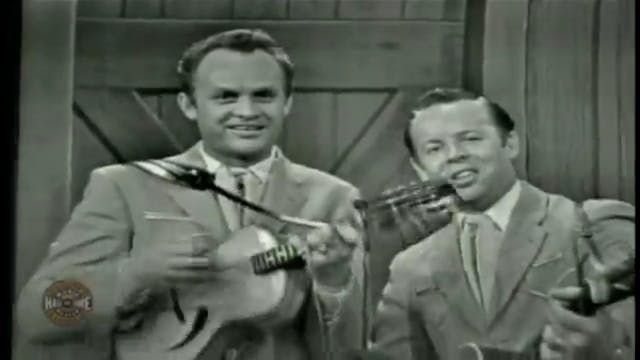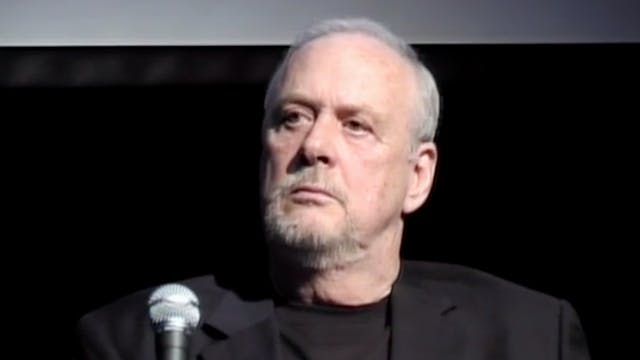Bob McDill • Poets and Prophets, 2008
Interviews
•
1h 24m
Bob McDill shares memories from his lengthy career as a hit country songwriter and offers insights into classic hits he’s written for Alabama, Dan Seals, and Don Williams during this Poets and Prophets program, held March 1, 2008, at the Country Music Hall of Fame and Museum.
Texas native McDill repeatedly acknowledges the importance of writing songs that draw favor from country radio. But he also stresses that he often crafted lyrics and melodies that pushed the more artful and culturally meaningful aspects of the country songwriting tradition.
Raised in Walden, Texas—a small town since incorporated into the larger city of Beaumont—Bob McDill took up viola while in elementary school, enjoyed singing at church, and started writing songs at age fifteen or sixteen. While attending Lamar University he joined a skiffle band and met Jack Clement, Bill Hall, Dickey Lee, and Allen Reynolds, all of whom became friends and played a role in McDill maturing into a Nashville songwriter.
McDill joined the U.S. Navy and, while in the service, had his first cuts, including “Happy Man” for pop singer Perry Como. After leaving the Navy, McDill spent a year and a half in Memphis. In 1970, Reynolds and Lee accepted an offer from Clement to work in Nashville, so McDill followed his friends.
Johnny Russell cut “Catfish John,” a song McDill and Reynolds wrote, but McDill says he didn’t understand country music until he heard George Jones’s recording of “A Good Year for the Roses” while riding in the backseat of a Cadillac.
“I just had an epiphany,” McDill says. “For the first time, I got it. I got country music.”
The songwriter also talks about his long-running relationships with certain artists, including Don Williams, who recorded more than thirty McDill songs over time, including “Good Ole Boys Like Me,” “Amanda,” “It Must Be Love,” and others. Other artists who had success recording Bob McDill songs include Crystal Gayle, Waylon Jennings, Kathy Mattea, Mel McDaniel, Pam Tillis, and Keith Whitley.
At the end of the event, McDill performs “Gone Country,” a song he wrote that was popularized by Country Music Hall of Fame member Alan Jackson.
FOR MORE
Explore the Museum’s public programming: https://countrymusichalloffame.org/plan-your-visit/exhibits-activities/public-programs/
FOLLOW THE MUSEUM
Instagram: https://www.instagram.com/OfficialCMHOF/
Facebook: https://www.facebook.com/countrymusichof/
Twitter: https://twitter.com/countrymusichof
Up Next in Interviews
-
Don Schlitz • Poets & Prophets, 2011
Country Music Hall of Fame member Don Schlitz discusses his songwriting career—encompassing more than fifty Top Ten country hits, including the Grammy and CMA Award-winning Kenny Rogers chart-topper “The Gambler”—during this 2011 interview, part of the Country Music Hall of Fame and Museum’s Poet...
-
Jimmy Capps • Nashville Cats, 2012
Jimmy Capps, a member of the Grand Ole Opry Band since 1967, discusses his experiences as a session player and demonstrates his technique during this Museum program, recorded on June 16, 2012, as part of the Nashville Cats series. Capps was known as “the master of smoothness” for the way he made ...
-
David Briggs • Nashville Cats, 2011
David Briggs revisits his session work as a pianist in Muscle Shoals, Alabama, and in Nashville, during this interview illustrated with vintage photos, recordings, and film clips. He also recalls his recording sessions with Elvis Presley.
Recorded on March 26, 2011, the program is part of the Co...



